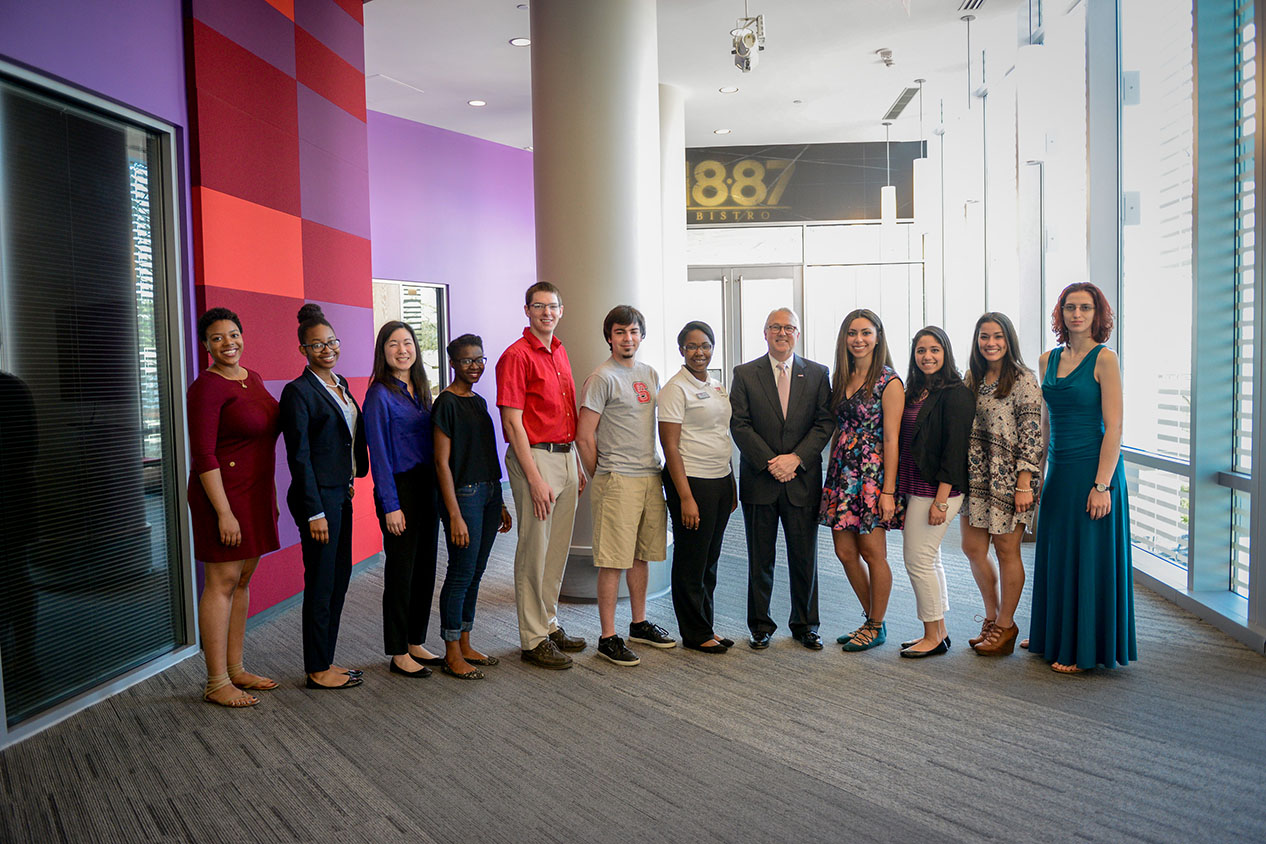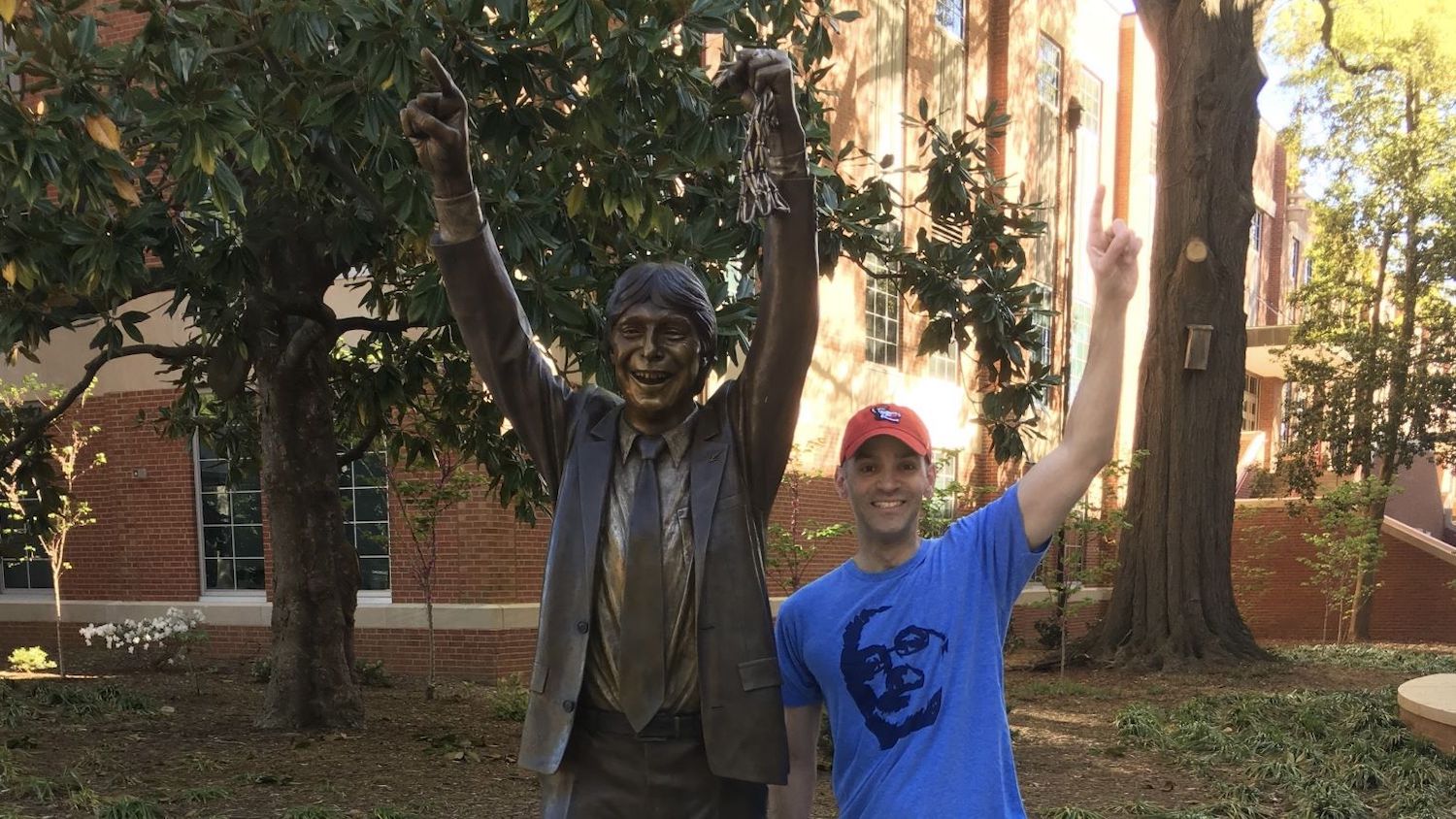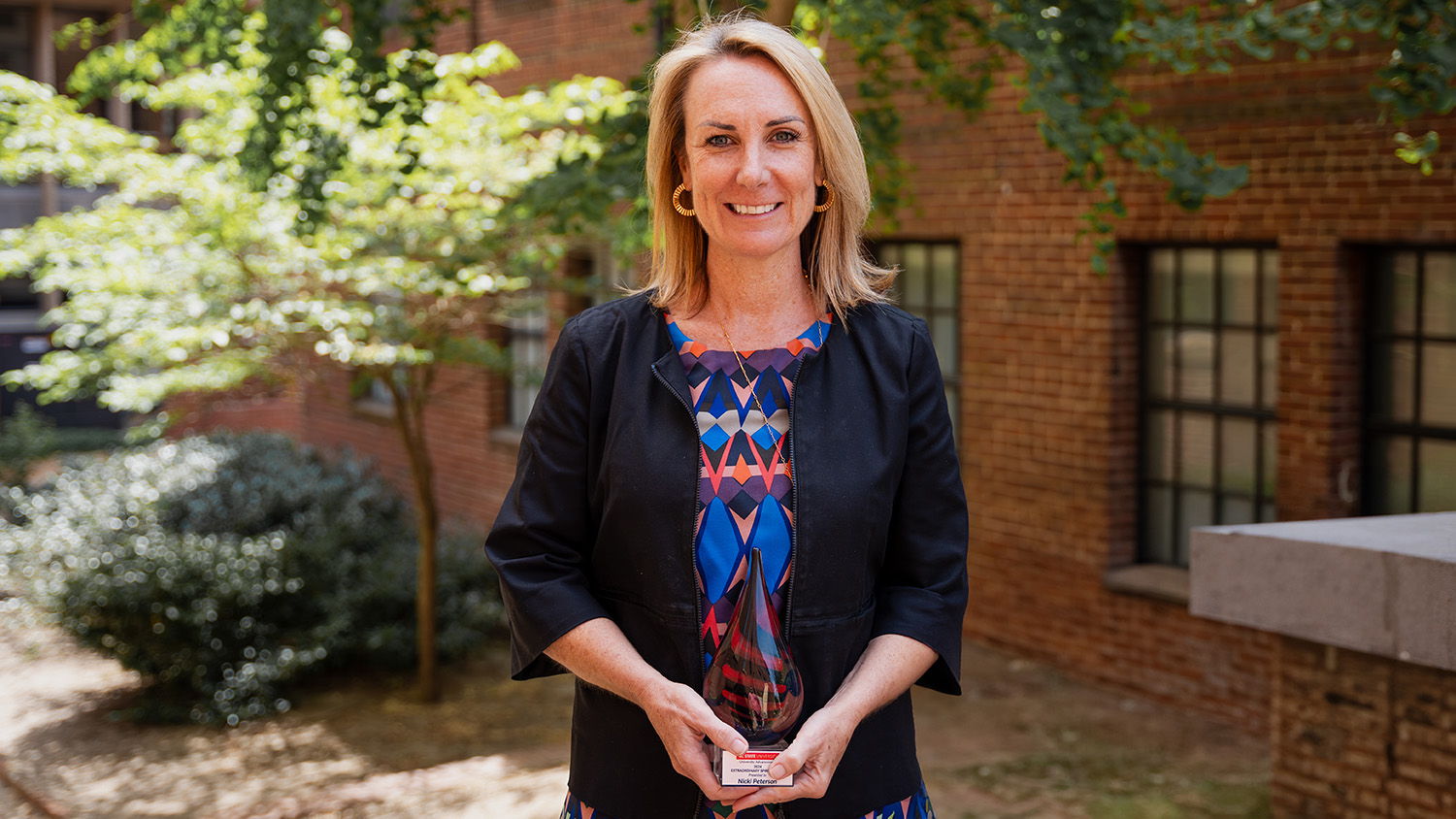Chancellor’s Study Abroad Scholarship Helps Students Think and Do

Nashea Williams’ study abroad experience in Costa Rica was brief.
But that spring break 2015 adventure, focused on crop and turfgrass production, made a big difference for the NC State University undergraduate.
She learned firsthand about global agricultural issues including sustainability, food security and climate change. The Clinton native taught children about biodiversity and explored ways that cultural and historical influences, as well as disease, impact crops.
“The trip inspired me to change my concentration from crop biotechnology to crop production,” said Williams, now a senior majoring in plant and soil science and aiming toward a plant-breeding career. “It inspired me to apply successfully for an internship last summer at Bayer CropScience. I also got to meet Vice President (Joe) Biden [through the 100,000 Strong in the Americas innovation grant] as a result of my experience in Costa Rica.”
Williams was among 19 NC State students benefiting from a 2015 Chancellor’s Study Abroad Scholarship. Grants totaled $50,000.
The initiative is supported by the University’s Greatest Needs Fund, which draws on private annual giving to provide the chancellor with discretionary funds to address critical needs and priorities such as increasing access to international experiences. For the inaugural 2014 effort, 10 students received a total of $25,000 in scholarships.
Chancellor Randy Woodson – who is directing $90,000 toward the 2016 scholarship cycle – said the impact of study abroad goes well beyond building academic knowledge to boosting participants’ confidence, independence and creativity, as well as their cultural competence and understanding of global challenges and perspectives.
NC State, Woodson said, must remove financial, curriculum structure and other barriers that discourage students from embracing this kind of Think and Do opportunity.
“There are few things we can do as a university that are more transformational in a young person’s life than getting them out of the country for a little while,” he said at a March 18 reception honoring the scholarship recipients at Talley Student Union. “When a student puts himself or herself out there, they learn to solve problems and take risks. Study abroad has a huge positive impact on their success after graduation and is often the first question at a job interview.”
Williams remembers leaving a study abroad information session excited – and distraught.
“I was thinking, ‘I don’t know how I’m going to pay for it, but I really need to go on this trip,’” she said.
The need for study abroad scholarships far exceeds available dollars, according to Ingrid Schmidt, associate vice provost for international affairs and director of study abroad.
During the 2014-15 academic year, about 13 percent of the 1,119 NC State undergraduates and 119 graduate students who studied abroad got support – representing 34 percent of scholarship applicants. The chancellor’s funding was part of approximately $246,000 in scholarships, including gifts designated through colleges and other programs, administered by the Study Abroad Office. Average student award was $1,600.
Study abroad programs vary widely in price, from a few thousand dollars to upward of $18,000, although many cost roughly the same as attending NC State for the same period.
“For 2015-16, only 28 percent of 770 applicants have received scholarship help,” Schmidt said. “The number of applicants keeps increasing, but the funding isn’t keeping up. We want every student to have access to this kind of experience. That’s who we are as NC State.
“This is really important for us as an institution.”
Another goal for the chancellor’s scholarship program is increasing diversity among study abroad participants. Each 2015 recipient is part of two or more groups that NC State considers underrepresented in study abroad: first-generation college students; STEM (science, technology, engineering and math) majors; male students; students who are part of racial or ethnic minority groups; and students receiving Pell Grants or with demonstrated financial need.
According to national surveys carried out in 2000 and 2008 by the American Council on Education (ACE) in collaboration with the College Board, about 81 percent of college-bound students plan to study abroad or express a strong desire to do so. Approximately 20 percent of NC State’s undergraduates study abroad by the time they graduate.
The university is among more than 500 United States educational institutions that are “commitment partners” in the Institute of International Education’s 2014-19 national campaign, Generation Study Abroad. NC State pledged to try and increase study abroad enrollments by 50 percent and increase participation from underrepresented groups by 50 percent.
The goals are ambitious. NC State’s study abroad numbers have risen fairly steadily over the last decade or so. In 2004-05, 597 students participated, compared to 1,082 in 2009-10. Its commitment to Generation Study Abroad also includes a goal of raising $1 million in endowment funds to provide more, and steady, scholarship aid. Officials want to keep increasing annual giving toward international programs, too.
Chancellor’s Study Abroad Scholarship recipients are expected to participate in efforts to encourage other students to consider international study and help them navigate details. In addition to Williams, the 2015 recipients were:
- College of Agriculture and Life Sciences: Austin Wrenn, Becky Zhong
- College of Education: Jenny Choi
- College of Engineering: Stephen Malcolm, Catrina Rateb, Maverick Starkey, Steven Thornton, Carol Welsh
- College of Humanities and Social Sciences: Londun Isler, Jonathan Kim, Sehida Mansaray
- Poole College of Management: Lily Chan, Arnasha Jones
- College of Natural Resources: Rebecca Nishida
- College of Sciences: Jim Lor, Matthew Torres
- College of Textiles: Nadeen Abdelhamid, Claudia Menjivar
Read more on Nashea’s experience.
- Categories:


